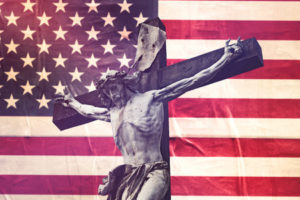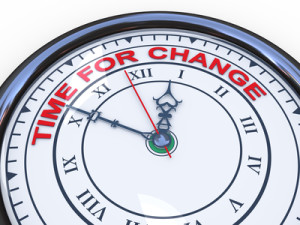The Religious Landscape of Pittsburgh PA

The Pew Research Center completed its second Religious Landscape Study in 2014; the first one was conducted in 2007. When Pew released its 2014 data, one of the big stories was the significant increase of respondents saying they were religiously “unaffiliated”—an increase of 6.7% since 2007—while those identifying as “Catholic” and “Mainline Protestant” dropped 3.1% and 3.4% respectively. The changes affected all regions of the country and many demographic groups. The Pew data sets are available so that you can compare state and some urban areas with one another. Here, I’ll look at what Pew found for the Pittsburgh metro area, its home state of Pennsylvania and the national data. There are links to the Pew data if you want to do a comparison for other states or metro areas in the U.S.
Here is the link for the Religious Landscape Study. As you scroll down the page, you will see data links for Christian and non-Christian faiths and geographical regions that include the fifty states and selected metro areas like Pittsburgh, Houston, Miami, etc. There are many metro areas, such as Cleveland and Denver that were not linked. There is demographic information as well as information on various spiritual or religious beliefs and practices such as frequency of prayer, attendance at religious services, belief in God, reading Scripture and others. There also is information on various social and political views, including views on abortion, same-sex marriage, homosexuality, government aid to the poor and others. The data on these beliefs and views is also available by state and metro area.
I’ll look at some Christian religious groups (Evangelical, Mainline Protestant, Historically Black, Catholic and Mormon) and two non-Christian faiths, Jewish and Muslim. Religious “nones,” agnostics and atheists will also be examined.
More Pittsburghers identified themselves as “Christian” and “Catholic” than the U.S. or Pennsylvania. Pittsburgh also had a higher percentage of residents who identified as “Mainline Protestant” than the U.S. There was a smaller percentage who said they were Evangelical in Pittsburgh than the U.S. Pittsburgh had a higher percentage of Christians, which seems due to its higher percentage of Catholics than the U.S. or Pennsylvania (32%, 20.8% and 24%, respectively). Nones, Muslims and Jews are essentially the same for all three geographic areas. There was also a notably lower percentage of those within historically Black churches. See the table below.
|
Religious Groups |
U.S. |
Pennsylvania |
Pittsburgh |
|
Overall Christian |
70.6% |
73% |
78% |
|
Evangelical |
25.4% |
19% |
15% |
|
Mainline Protestant |
14.7% |
23% |
25% |
|
Historically Black |
6.5% |
5% |
2% |
|
Catholic |
20.8% |
24% |
32% |
|
Mormon |
1.6% |
<1% |
1% |
|
Jewish |
1.9% |
1% |
<1% |
|
Muslim |
.9% |
1% |
<1% |
|
Nones |
22.8% |
21% |
18% |
|
Agnostics |
4.0% |
4% |
2% |
|
Atheist |
3.1% |
3% |
3% |
A greater percentage of Pittsburghers are certain of their belief in God than residents of the U.S. or Pennsylvania. And they are about the same in saying how important religion is in their lives. However, that belief does not translate into more frequent religious practices. Fewer Pittsburghers read Scripture at least weekly (25%) than the U.S. (35%) or PA (31%). And fewer Pittsburghers attend religious services at least weekly (29%) than the U.S. (36%) or PA (34%). Pittsburghers do report praying weekly or monthly more often than the U.S. or PA. See the table below.
|
Beliefs & Practices |
U.S. |
Pennsylvania |
Pittsburgh |
|
Certain of God |
63% |
61% |
69% |
|
Fairly Certain |
20% |
21% |
16% |
|
Not Certain |
5% |
5% |
6% |
|
Atheist |
2% |
10% |
5% |
|
Religion very |
53% |
51% |
50% |
|
Religion somewhat |
24% |
26% |
26% |
|
Religion not important |
22% |
23% |
24% |
|
Services at least wkly |
36% |
34% |
29% |
|
Monthly/ few x yearly |
33% |
35% |
40% |
|
Seldom/never |
30% |
31% |
31% |
|
Pray daily |
55% |
54% |
54% |
|
Pray wkly/monthly |
22% |
22% |
30% |
|
Pray seldom/never |
23% |
23% |
17% |
|
Read Scripture wkly |
35% |
31% |
25% |
|
Read monthly/yrly |
18% |
18% |
15% |
|
Read seldom/never |
45% |
50% |
57% |
On social and political issues, the only one for Pittsburghers that stood out was on whether homosexuality should be accepted or rejected. More Pittsburghers were in favor of accepting it and less thought homosexuality should be discouraged. With regard to whether or not abortion should be legal or illegal in most cases; whether same-sex marriages was favored or opposed; or whether government aid hurts or helps the poor, Pittsburghers were within the same range of opinion as the U.S. and Pennsylvania. See the chart below.
|
Social/Political Views |
U.S. |
Pennsylvania |
Pittsburgh |
|
Abortion legal |
53% |
51% |
51% |
|
Abortion illegal |
43% |
44% |
41% |
|
Accept homosexuality |
62% |
63% |
69% |
|
Discourage homosexuality |
31% |
30% |
24% |
|
Pro same-sex marriage |
53% |
54% |
51% |
|
Con same-sex marriage |
39% |
37% |
37% |
|
Gov’t aid hurts poor |
44% |
48% |
48% |
|
Gov’t aid helps poor |
50% |
46% |
46% |
The Religious Landscape Survey did not report data on religious beliefs and practices by metro areas, but it did report them by state. So what follows compares the above beliefs and practices in Pennsylvania (PA) as whole to Evangelicals, Mainline Protestants and Catholics within the state.
Not surprisingly, Evangelicals were significantly more certain of their belief in God; more said religion was very important to them; they attended religious services more often; they prayed more often and they read Scripture more often. Catholics and Mainline Protestants in Pennsylvania had essentially the same percentages of certainty in their belief in God; saying religion was very important to them; and for daily prayer. Catholics attended weekly services more often (40% versus 33%) and Mainline Protestants read Scripture weekly more often (29% versus 18%).
Belief in God, regular attendance at religious services, frequent prayer and Scripture reading are foundational religious practices for Evangelicals. They illustrate the concurrent belief for Evangelicals of the importance of religion in their lives. See the chart below.
|
Beliefs & Practices |
PA |
Evan |
Mainline |
Catholic |
|
Certain of God |
61% |
88% |
66% |
65% |
|
Fairly Certain |
21% |
8% |
29% |
24% |
|
Not Certain |
5% |
2% |
2% |
6% |
|
Atheist |
10% |
<1% |
2% |
3% |
|
Religion very |
51% |
83% |
52% |
54% |
|
Religion somewhat |
26% |
13% |
40% |
32% |
|
Religion not important |
23% |
3% |
8% |
13% |
|
Services at least wkly |
34% |
60% |
33% |
40% |
|
Monthly/ few x yearly |
35% |
27% |
48% |
37% |
|
Seldom/never |
31% |
12% |
18% |
23% |
|
Pray daily |
54% |
81% |
56% |
56% |
|
Pray wkly/monthly |
22% |
15% |
31% |
27% |
|
Pray seldom/never |
23% |
3% |
12% |
16% |
|
Read Scripture wkly |
31% |
69% |
29% |
18% |
|
Read monthly/yrly |
18% |
19% |
25% |
23% |
|
Read seldom/never |
50% |
12% |
46% |
59% |
Compared to the U.S. percentages for Evangelicals, PA Evangelicals are slightly more likely to read Scripture weekly (69% versus 63%). But essentially the same for the certainty of their belief in God (88% versus 88%), the importance of religion (83% versus 79%), weekly attendance of religious services (60% versus 58%) and daily prayer (81% versus 79%).
Again for PA Evangelicals, there were clear differences of views on abortion, whether homosexuality should be accepted or rejected, and acceptance of same-sex marriage. However results were not as distinct on whether government aid hurts or helps the poor. Evangelicals were significantly more opposed to abortion and same-sex marriage. And they were twice as likely to say homosexuality should be discouraged. Catholics were more likely than Mainline Protestants to be opposed to abortion and to accept homosexuality.
|
Social/Political views |
PA |
Evan |
Mainline |
Catholic |
|
Abortion legal |
51% |
26% |
58% |
43% |
|
Abortion illegal |
44% |
71% |
38% |
50% |
|
Accept homosexuality |
63% |
33% |
61% |
66% |
|
Discourage homosexuality |
30% |
59% |
29% |
28% |
|
Pro same-sex marriage |
54% |
27% |
53% |
51% |
|
Con same-sex marriage |
37% |
68% |
36% |
38% |
|
Gov’t aid hurts poor |
48% |
59% |
54% |
48% |
|
Gov’t aid helps poor |
46% |
34% |
38% |
46% |
A likely explanation for the noted differences in views on abortion, homosexuality and same-sex marriage for Evangelicals is the strength in their belief of the Bible as the Word of God. Fifty-five percent of U.S. Evangelicals said the Scriptures were the literal Word of God, while another 29% said the Bible was the word of God, but not everything in it had to be taken literally. Interestingly, another 8% of “Evangelicals” did not believe the Scriptures were the word of God. Catholics and Mainline Protestants had similar percentages on how they viewed Scripture. See the chart below.
|
Interpreting Scripture |
Evangelical |
Mainline |
Catholic |
|
Word of God, literally |
55% |
24% |
26% |
|
Word of God, not all literal |
29% |
35% |
36% |
|
Not the word of God |
8% |
28% |
28% |
|
Don’t know |
4% |
9% |
8% |
When Pew sorted their data set according to how U.S. participants interpreted Scripture, the correspondence (could we suggest influence?) of their social/political views was evident. Conservative, literal interpreters of Scripture were more hesitant to say they supported social/political issues like abortion, homosexuality and same-sex marriage than those who did not interpret the Bible as the word of God. See the chart below.
|
Social/Political views |
Word of God, literally |
Word of God, not all literal |
Not the word of God |
|
Abortion legal |
32% |
48% |
78% |
|
Accept homosexuality |
37% |
63% |
86% |
|
Pro same-sex marriage |
26% |
52% |
81% |
There could be a subsection of socially and politically conservative Christians who would disagree that the Bible “is to be taken literally, word for word.” For example, if they thought a literal, word for word reading of Genesis 1-11 required a belief in six twenty-four hour days for God to create, and a global flood they may have failed to say they believed the Bible “is to be taken literally, word for word.” If this understanding led them to say the Bible was the Word of God, but “not everything in the Bible should be taken literally, word for word,” they would have diluted the percentages found approving abortion, homosexuality and same-sex marriage within the “Word of God, not all literal” grouping.
Also, when the Religious Landscape Survey asked where participants looked to most for guidance on right and wrong—religion, philosophy/reason, common sense and science were options—but Scripture was not. My concern here is that a lack of nuance in categorizing views on interpreting Scripture may have influenced the perceived support of these social/political issues among Christians who believe the Bible is the Word of God. Putting aside this critique, the Religious Landscape Survey does provide a wealth of information on the religious beliefs and practices in the U.S. We have only scratched the surface here. Turn to the 2014 Religious Landscape Study for more information, particularly if you are curious about a state or metro area other than what I’ve highlighted here.





